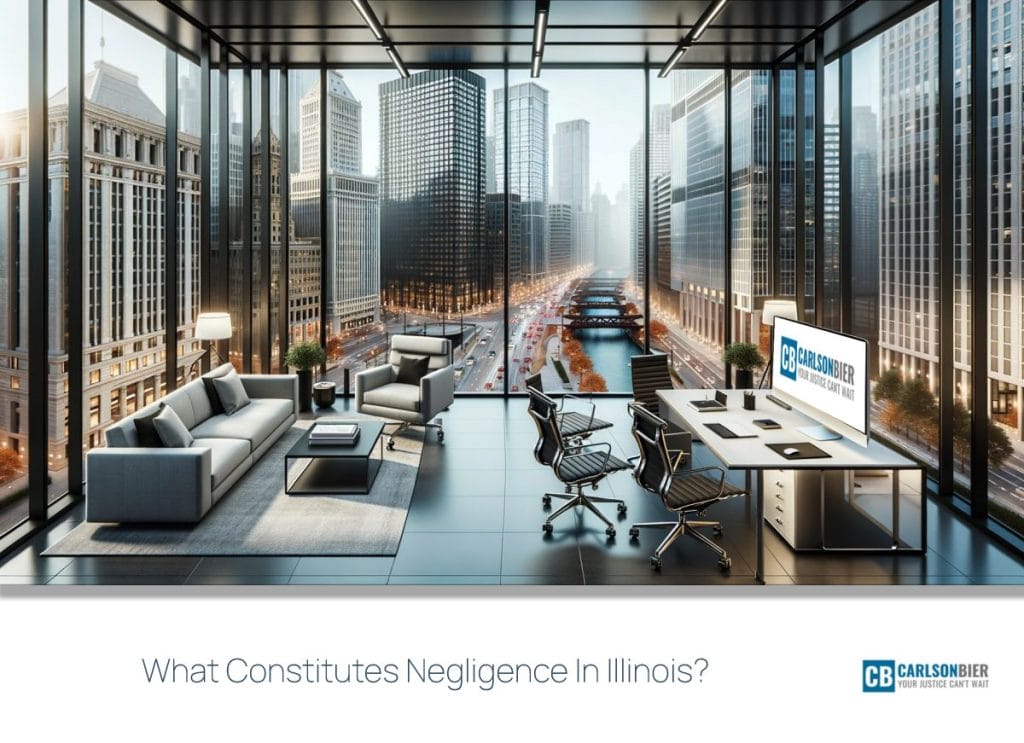Identifying Negligence in Illinois
Navigating the complex world of tort law becomes significantly easier with a foundational understanding of an essential legal concept – negligence. But what exactly constitutes negligence in Illinois? This critical question is what we seek to unpack in this informative post.
The Law Office of Carlson Bier Associates specializes in personal injury law and is keen on helping Illinois residents understand their rights and responsibilities under the Illinois Negligence Act. As you read this article, remember that understanding this complex legal issue could mean the difference between a successful legal claim and a failed one.
A Look at the Definition of Negligence
By broad definition, negligence in Illinois, as in many other jurisdictions, refers to a failure to behave with the level of care that a rational and cautious individual would have in the same circumstances. When a person’s actions don’t measure up to the legally established behavior known as the ‘standard of care,’ they may be found legally negligent.
Understanding what constitutes negligence, however, requires having a working knowledge of the elements that courts in Illinois consider. These elements include duty, breach, causation, and damages. Let’s delve into each of these elements.
Understanding The Duty of Care
The duty of care exists when circumstances or the law dictates that a person owes others a reasonable level of care to prevent harm. For instance, a grocery store has an obligation to keep its premises safe from hazards. Similarly, drivers have a duty to operate their vehicles safely and within the bounds of the law.
The Breach of Duty
The breach of duty happens when a person fails to uphold the standard of care in a given circumstance. A driver speeding or a business failing to remove a known safety hazard are examples of a breach of duty. Proving that this breach directly led to injury or damages is paramount in a personal injury case.
Causation in Illinois Negligence Claims
The third crucial element, causation, means that the claimant must show that their injuries were directly caused by the defendant’s breach of the duty of care. This element may become a point of contention, especially when multiple parties or external factors played a role in the plaintiff’s injuries.
However, in such cases, Illinois uses the comparative negligence rule, which allows a plaintiff to recover damages so long as they are not more than 50% at fault for the accident.
The Element of Damages
Lastly, damages are physical, financial, or emotional losses experienced by the plaintiff due to the defendant’s negligence. Damages may include lost wages, medical expenses, and pain and suffering, among others.
Role of Statute of Limitations in Illinois Negligence Cases
The state of Illinois imposes a limitation on when a person can file a personal injury lawsuit. According to the
Illinois statute of limitations, a victim has two years from the date of the injury or discovery of the injury to file a claim.
If this period elapses, a court may reject the claim, rendering the plaintiff ineligible for compensation. It is essential to promptly seek legal counsel in the aftermath of an injury to ensure you satisfy all legal requirements.
Avoiding Common Pitfalls in Illinois Negligence Cases
Negligence cases may seem straightforward but are often riddled with complexities that can hinder a successful claim. Harnessing the expertise of experienced personal injury lawyers in Illinois, such as the Law Office of Carlson Bier Associates, can help victims navigate these difficulties and secure proper compensation.
By now, it should be clearer what constitutes negligence in Illinois. Still, individual cases differ significantly, and it’s vital to consult with a lawyer to understand your circumstances fully. With a robust grasp of Illinois negligence law and a reliable attorney by your side, you are well-positioned to protect and advocate for your rights when faced with a negligence claim in Illinois.

